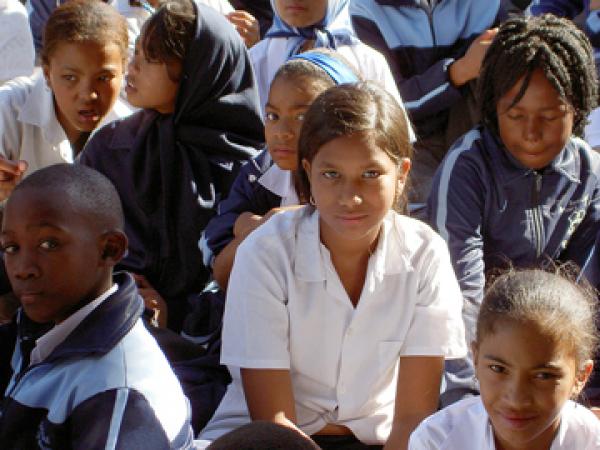A year of compulsory community service for new teachers?

On April Fool’s day, GroundUp published a story which claimed that government had made it compulsory for teacher graduates to provide their services in non-model C government schools for one year.
Despite being an April fool’s joke, the response to GroundUp’s prank showed that few university educated teachers want to teach in township schools. This is highly problematic in the context of the current education climate, where quality education is not a reality for many South African youth living and going to school in townships and rural areas.
Many undergraduates at the UCT School of Education have their eyes set on private schools. At these schools pay is higher, classes are small, and there is an abundance of infrastructural and technological resources available, which make learning and teaching a relatively comfortable undertaking.
South Africa is only producing a third of the teachers it needs. It needs 15,000 more teachers annually, a need made extra difficult because at least a quarter of all newly trained teachers do not take up teaching posts in South African schools. They are deterred largely by low salaries and the poor image of the profession.
The South African Schools Act (SASA) allows School Governing Bodies (SGBs) to charge school fees and disburse these to lure teacher candidates to their schools. The capacity to do this is tied to how much students at the particular school can be reasonably expected to pay. This, in turn, depends on the wealth of pupils.
Schools with less wealthy pupil bases cannot attract high quality teachers by offering higher wages. This means that it is harder to fill vacant posts with qualified teachers in poorly resourced schools.
The poorest schools have the fewest educators and the lowest-qualified educators. With respect to Western Cape teacher allocation, more are allocated to poor schools, but higher qualified teachers are allocated to less poverty affected schools. Wealthier schools have a greater number of total educators and relatively more qualified educators, and quantity and quality of teachers determines student outcomes.
Consequently, if government is to seriously uphold the principles of equality and redress in the Constitution, then the distribution of educators must change.
The question of whether there should be a compulsory year of community service in non-model C government schools for newly graduated teachers begs urgent treatment.
Could it help improve the ailing public education system and align countrywide teacher distribution with the values of redress and equality enshrined in the constitution?
GroundUp asked experts, activists and union representatives for their views.
Doron Isaacs, Deputy General Secretary of Equal Education, said, “I do believe in compulsory community service in under-resourced schools for all teaching graduates. For the majority of teaching graduates, these are the schools they will end up teaching in, so this provision is actually most important for those graduating from the more prestigious universities, as they might otherwise not spend time in these schools … But to my mind this alone is not enough. It should be accompanied by at least one of the practical periods undertaken during their teaching studies spent in an under-resourced school. The universities should put effort into facilitating this.”
Third-year education student at CPUT Mowbray campus, Lwando Mzandisi, agreed. “Having this policy will take away that right to choose where you want to work. It would be much better that for teaching prac, you spend six months to a year in a non-model c government school before you have your degree … My plan is to work in the Western Cape for two years … [then] I would love to go back to work in the deep rural areas [of the Eastern Cape]”.
Isaacs would go further, with “financial incentives to attract highly-skilled teachers into under-resourced schools on a more permanent basis, and a community service scheme for university graduates who are not teaching graduates. They still have skills and expertise which could benefit the public school system, whether these relate to extra-mural programs, counselling, management, infrastructure, or tutoring; and a post-provisioning model, which allocates teaching posts to schools, needs to be revised to provide additional teachers to under-resourced schools”.
Dr Ursula Hoadley questioned whether it would be practical. “I imagine that simply administering it may be more than the department or schools have capacity for at present. Also, it probably has financial implications for students, and education students tend to be on the cash-strapped end of the continuum. How would government justify this? In the case of doctors they pay a huge subsidy towards their training, but I am not sure if this is the case for teachers.”
SADTU general secretary Mugwena Maluleke said, “It is an interesting topic, thought provoking for that matter, but we do not have a position on it as a union at this time”.
Support independent journalism
Donate using Payfast

Don't miss out on the latest news
We respect your privacy, and promise we won't spam you.
Next: Murder in Ceres: gay people are not safe, says activist
Previous: Deadly disease that’s curable if you’re rich

This article is licensed under a Creative Commons Attribution-NoDerivatives 4.0 International License.
